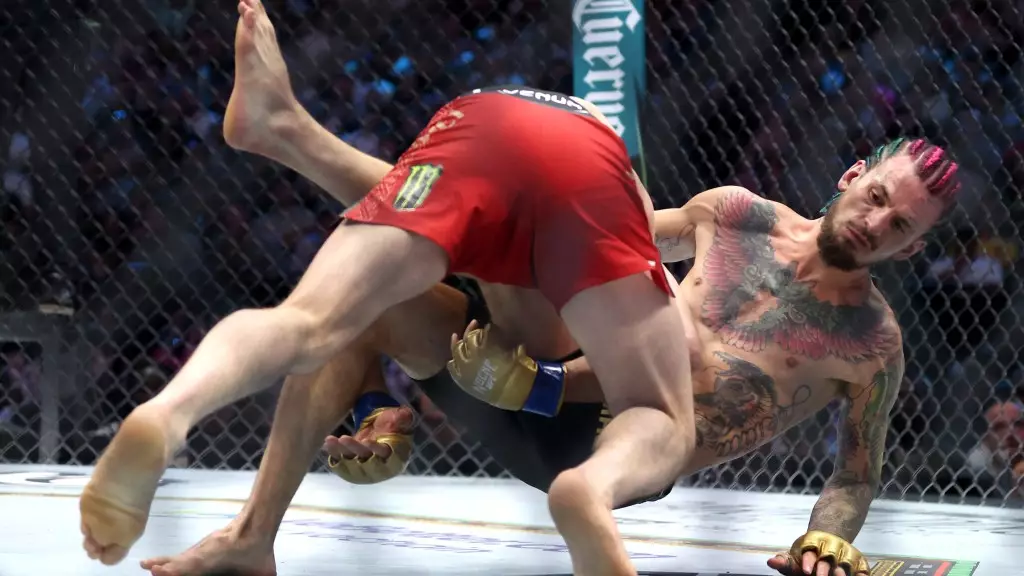As the UFC bantamweight division thrives with talent, the fight community is buzzing with speculation regarding potential title matches. With Merab Dvalishvili’s impressive title retention against Umar Nurmagomedov at UFC 311, the landscape for future match-ups grows more intriguing. Aljamain Sterling, the former champion, voices critical views surrounding the prospect of a rematch between Dvalishvili and Sean O’Malley, raising questions about the authenticity and viability of such a fight.
Dvalishvili, boasting a record of 19 wins and 4 losses, successfully defended his title in a match that highlighted his grappling superiority and physical dominance over Nurmagomedov. This victory reinforced his position as a formidable champion. Meanwhile, O’Malley, with a record of 18 wins and 2 losses, has remained a fan favorite, partly due to his striking abilities and charismatic persona, despite not having the same recent competitiveness as some of his challengers.
Sterling critiques the notion of an immediate rematch between Dvalishvili and O’Malley, positing that O’Malley’s previous encounter with Dvalishvili ended with a clear verdict: he was decisively outclassed. The former champion remarks on calculating factors, such as fight inactivity, which brings significant weight to O’Malley’s candidacy for a title shot. O’Malley’s extended breaks between fights and his past performance against Dvalishvili — which saw him taken down multiple times — may leave fans and pundits questioning whether he presents a worthy challenge.
Moreover, Sterling highlights the disparity in their fight trajectories. While O’Malley has taken considerable time off due to injuries and an inconsistent fight schedule, Dvalishvili’s consistent performance speaks volumes about his readiness for the challenges of championship fights. Sterling accurately points out the nature of fight activity and how it correlates to success in the octagon, which begs the question of whether O’Malley has earned the right to challenge for the title once more.
Sterling does concede that from a financial viewpoint, a rematch could be beneficial. With the allure of O’Malley’s fanbase and his star power, promotional aspects could tilt favorably for a second bout, potentially leading to lucrative paydays for both fighters. However, he reiterates that this should not be the only criteria for matchmaking; fight fans crave matchmaking that is grounded in competitive merit rather than merely commercial gain.
The concerns around O’Malley’s ability to adapt and offer a different strategy this time also resonate deeply. “The Suga Show” may possess striking charisma but without a clear path to victory against Dvalishvili’s grappling-heavy style, the rematch could lack competitive intrigue. Sterling argues that promoting a high-stakes fight should center around a fighter’s proven capacity to evolve and compete effectively, rather than just capitalizing on past narratives.
In wrapping up the ongoing debate about potential rematch dynamics in the bantamweight division, it is evident that while commercial interests play a significant role, the essence of mixed martial arts thrives on competition and merit. Dvalishvili’s recent defensive success gives him legitimacy as champion, while O’Malley’s case for another title shot lacks clarity and substantiation. Therefore, the challenge remains not only about who brings the most money to the table but also who can authentically step up to the challenge that a title fight represents within the sport. As fans, we must advocate for bouts that count, whether they come from financial incentives or competitive integrity.

